The purpose of Article 2 is to specify the circumstances and conduct the which constitute anti-doping rule violations. Hearings in doping cases will proceed based on the assertion that one or more of these specific rules have been violated. Athletes or other Persons shall be responsible for knowing what constitutes an anti-doping rule violation and the substances and methods which have been included on the Prohibited List. The following constitute anti-doping rule violations:
2.1 Presence of a Prohibited Substance or its Metabolites or Markers in an Athlete’s Sample 2.1.1 It is each Athlete’s personal duty to ensure that no Prohibited Substance enters his or her body. Athletes are responsible for any Prohibited Substance or its Metabolites or Markers found to be present in their Samples. Accordingly, it is not necessary that intent, Fault, negligence or knowing Use on the Athlete’s part be demonstrated in order to establish an anti-doping rule violation under Article 2.1.
[Comment to Article 2.1.1: An anti-doping rule violation is committed under this Article without regard to an Athlete’s Fault. This rule has been referred to in various CAS decisions as “Strict Liability”. An Athlete’s Fault is taken into consideration in determining the Consequences of this anti-doping rule violation under Article 10. This principle has consistently been upheld by CAS.]
World Anti-Doping Code • 2015 with 2018 amendments 19
2.1.2 Sufficient proof of an anti-doping rule violation under Article 2.1 is established by any of the following: presence of a Prohibited Substance or its Metabolites or Markers in the Athlete’s A Sample where the Athlete waives analysis of the B Sample and the B Sample is not analyzed; or, where the Athlete’s B Sample is analyzed and the analysis of the Athlete’s B Sample confirms the presence of the Prohibited Substance or its Metabolites or Markers found in the Athlete’s A Sample; or, where the Athlete’s B Sample is split into two bottles and the analysis of the second bottle confirms the presence of the Prohibited Substance or its Metabolites or Markers found in the first bottle.
2.1.3 Excepting those substances for which a quantitative threshold is specifically identified in the Prohibited List, the presence of any quantity of a Prohibited Substance or its Metabolites or Markers in an Athlete’s Sample shall constitute an anti-doping rule violation. 2.1.4 As an exception to the general rule of Article 2.1, the Prohibited List or International Standards may establish special criteria for the evaluation of Prohibited Substances that can also be produced endogenously.
[Comment to Article 2.1.2: The Anti-Doping Organization with results management responsibility may, at its discretion, choose to have the B Sample analyzed even if the Athlete does not request the analysis of the B Sample.]
CONSEQUENCES OF DOPING
In accordance with Code Art. 14.3, the IRF must publish the list of international athletes and athlete support personnel sanctioned under its results management jurisdiction (no later than 20 days after the final appellate decision), and include the following information:
- Sport
- Anti-doping rule violated
- Name of the Athlete or other Person committing the violation
- Prohibited Substance or Prohibited Method involved
- Consequences imposed
The IRF will also publish sanctions issued by any other ADO or NADO.
The IRF will publish information regarding sanctions, which may include the following:
- IF anti-doping decisions (containing the date of the decision – the name of the person sanctioned – the sanction – the PDF Decision)
- Table of suspensions (containing the date of the beginning and of the end of the suspension – the name of the person sanctioned – the PDF Decision)
- Case status table (containing the date of the sample collection – the Event location – the name of the athlete – test type – a substance involved – date it was reported to the ADO – whether it is under investigation/before the hearing panel/before the appeal panel – the date of the decision)
- CAS Decisions related to the ADO (containing the date of the decision – Name of the person sanctioned – the sanction – the PDF Decision)
It may be an Anti-Doping Rule Violation (ADRV) to work with Athlete Support Personnel who has been sanctioned by the IRF, as well as any coaches, trainers, physicians or other athlete support personnel who are ineligible on account of an ADRV or who have been criminally convicted or professionally disciplined in relation to doping (see WADA’s Prohibited Association List).
